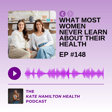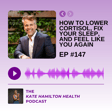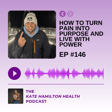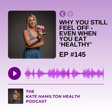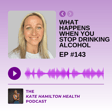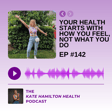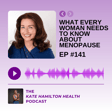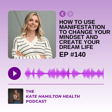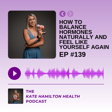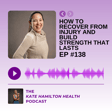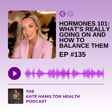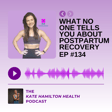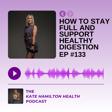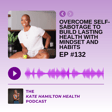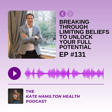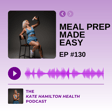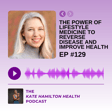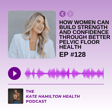
#137: Nicole Quigley: The real reason you keep binge eating and what to do instead
If you're tired of starting over every Monday, caught in the guilt cycle of binge eating, or overwhelmed by the ups and downs of dieting - this episode is for you. I’m joined by Nicole Quigley, a fat loss coach and the founder of Diet Starts Monday, who’s on a mission to help women ditch diet culture and embrace lasting, healthy habits with compassion, not restriction.
We chat about emotional eating, the root causes of food guilt, and why willpower alone isn’t the answer. Nicole opens up about her personal journey through yo-yo dieting and shares how she reframed her mindset to support sustainable fat loss. You’ll walk away with practical strategies to break free from all-or-nothing thinking, manage emotional triggers, and create a healthier relationship with food - one that actually lasts.
EPISODE HIGHLIGHTS:
[0:30] - Meet Nicole Quigley, fat loss coach and founder of Diet Starts Monday
[1:29] - Why guilt and punishment don’t lead to sustainable fat loss
[2:39] - Nicole’s personal journey through disordered eating and body image struggles
[7:27] - Simple strategies to break the binge-restrict cycle
[13:48] - The emotional side of eating: what triggers it and how to manage it
[30:24] - Creating space between emotions and reactions to build better habits
[35:55] - How perfectionism sabotages progress - and what to do instead
[40:43] - Reflecting on your habits to create long-term lifestyle change
[50:16] - Why structure can actually create more freedom in how you eat
Links & Resources:
- Connect with me on Instagram here
- Connect with Nicole on Instagram here
- Learn more about KHH coaching here
If you enjoyed this episode, please subscribe, leave a review, and share it with friends who might benefit. For more health and fitness tips, follow me on Instagram and TikTok @katehamiltonhealth.
Music b LiQWYD Free download: hypeddit.com/link/xxtopb [http://hypeddit.com/link/xxtopb] Promoted by FreeMusicPromo [https://www.youtube.com/channel/UCbycji-eySnM3WD8mbxPUSQ] / @freemusicpromo
